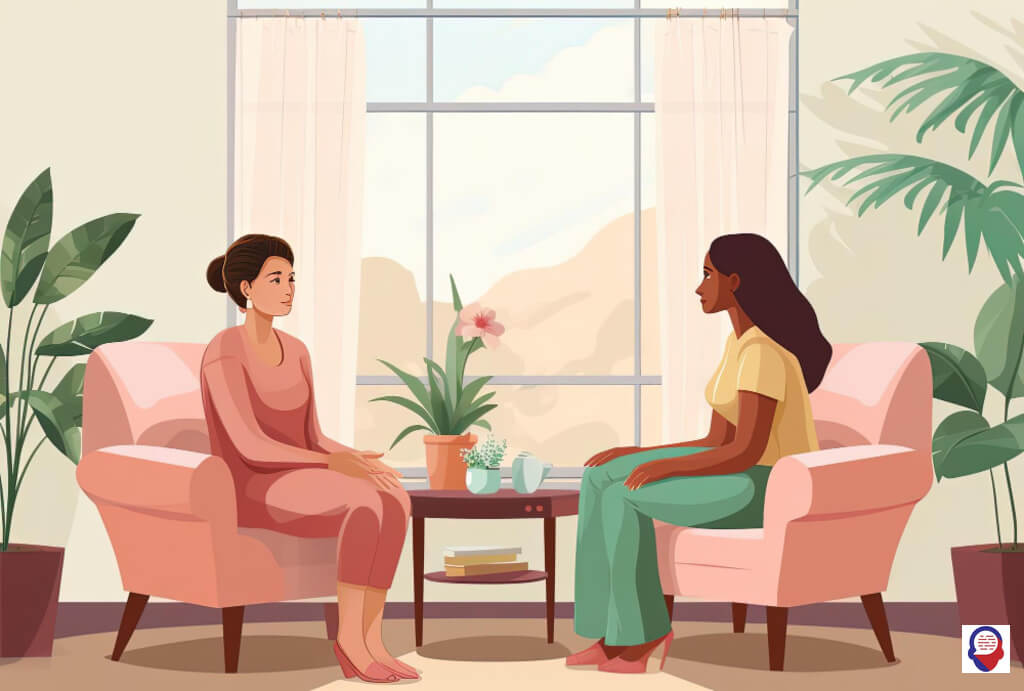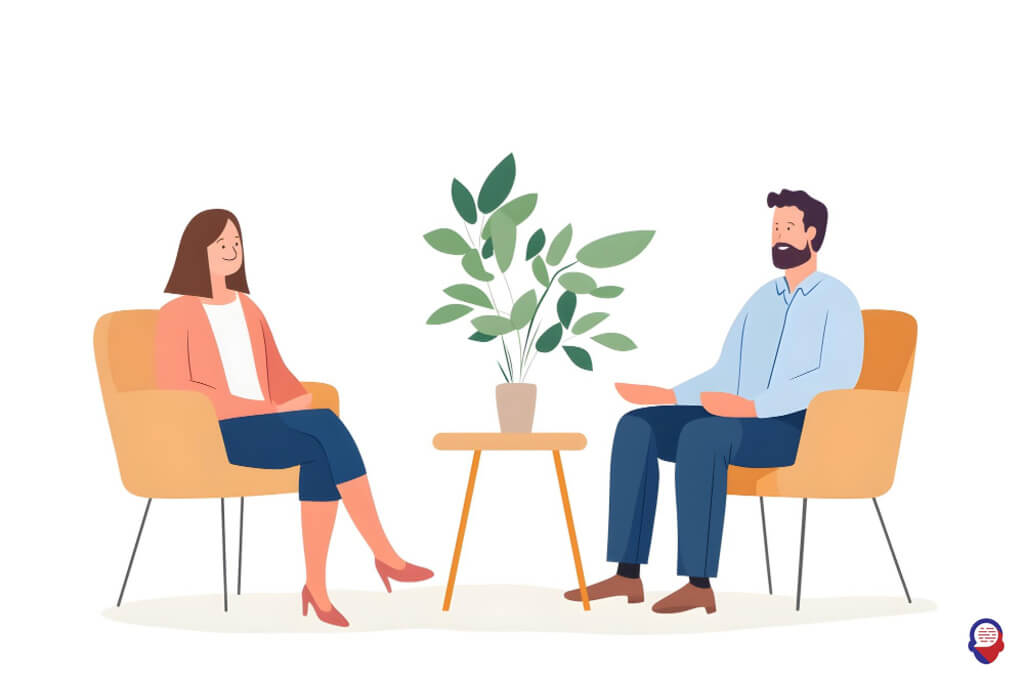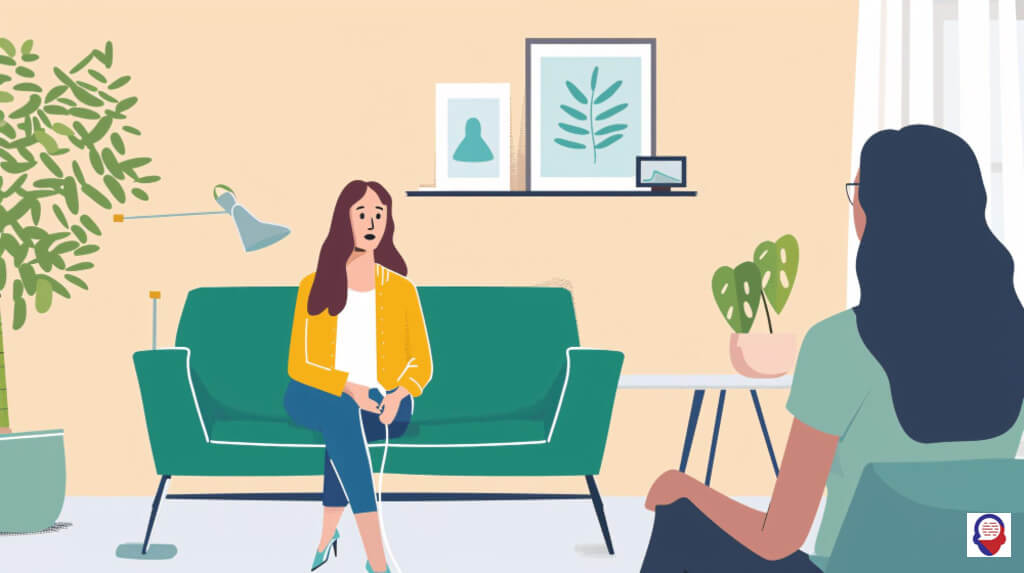Your Guide to Finding Calm Through Therapy for Anxiety
Stress feels like a constant companion in the modern world. It’s the tight knot in your stomach before a big presentation, the racing heart in traffic, the endless hum of a to-do list that never seems to shrink. Sometimes, that stress morphs into something bigger, something more persistent. It becomes anxiety, a shadow that follows you, colouring your thoughts and dictating your choices. If this sounds familiar, you are far from alone. The weight of worry can feel isolating, but the path toward relief is one many have walked successfully. That path, for millions, leads to therapy.
Therapy is not a sign of weakness, it is a declaration of strength. It is the courageous decision to stop simply surviving the storm of anxiety and instead learn how to navigate it, to understand its patterns, and ultimately, to find the calm that exists on the other side. This is not about erasing stress from your life, an impossible task, but about fundamentally changing your relationship with it. It’s about building a toolkit of resilience, insight, and practical strategies, so that you are no longer at the mercy of your anxiety, but in control of your response to it.
This guide is designed to demystify the process. We will explore what anxiety truly is, how therapy works to dismantle it, and what you can expect on your journey toward a more peaceful, present life. It’s time to take a deep breath and take the first step.

What Exactly Is Anxiety and How Does It Affect Us?
Anxiety is your body’s natural and intelligent response to stress, an internal alarm system designed to alert you to perceived threats in your environment. It’s a future-oriented state of mind, a feeling of unease, worry, or fear about what’s to come.
Think of it as your mind’s ancient survival software. When our ancestors faced a saber-toothed tiger, this system, often called the “fight-or-flight” response, was essential. It flooded the body with adrenaline and cortisol, priming muscles for action, sharpening focus, and increasing heart rate to pump oxygen where it was needed most. This response saved lives.
The problem is, our modern brains can’t always distinguish between a tiger and a looming work deadline, a difficult conversation, or a crowded supermarket. The alarm system gets triggered by threats that are psychological, not physical. When this system becomes overactive, firing too often or too intensely, it shifts from a helpful survival tool into a source of chronic distress. This is when normal stress evolves into an anxiety disorder.
The effects are not just in your head; they are profoundly physical and behavioural. Physically, you might experience a racing heart, shortness of breath, dizziness, muscle tension, headaches, or stomach problems. Emotionally, it can manifest as persistent worry, irritability, a sense of dread, or feeling constantly on edge. Cognitively, it can cloud your thinking, making it hard to concentrate, causing you to catastrophize, or trapping you in cycles of negative thoughts. Behaviourally, you might start avoiding situations that trigger your anxiety, impacting your work, relationships, and quality of life.

Why Should I Consider Therapy for Stress and Anxiety?
You should consider therapy because it provides a structured, confidential, and supportive environment to understand the root causes of your anxiety and develop effective, lifelong coping strategies. It is a proactive investment in your mental wellbeing, guided by a trained professional.
While talking to friends or family can be comforting, it’s not the same as therapy. Loved ones are inherently biased, they are part of your life story, and their advice, though well-intentioned, is based on their own experiences. A therapist, on the other hand, is an objective, non-judgmental third party whose only agenda is your health and progress. They are trained to listen in a specific way, to identify patterns you may not see, and to apply evidence-based techniques to facilitate real change.
Simply "toughing it out" often proves counterproductive. Ignoring anxiety or trying to push it down can be like holding a beach ball underwater, it takes immense energy and eventually, it will pop back up with even more force. Therapy isn’t about ignoring the problem, it’s about turning to face it with a skilled ally by your side.
It moves you from a passive position, where anxiety happens to you, to an active one, where you learn to respond to it with intention and skill. It’s the difference between being tossed about by the waves and learning how to surf. You don’t control the ocean, but you learn how to ride its currents with balance and confidence.

What Are the Most Effective Types of Therapy for Anxiety?
Several evidence-based therapies are highly effective for anxiety, with Cognitive Behavioural Therapy (CBT) being one of the most researched, common, and successful approaches. However, the "best" therapy is often the one that resonates most with you and your specific needs.
The field of psychology offers a rich variety of therapeutic models, each with a unique lens through which to understand and treat anxiety. While CBT is a fantastic starting point for many, other powerful modalities like Acceptance and Commitment Therapy (ACT) and Psychodynamic Therapy offer different pathways to healing. The key is finding a therapeutic relationship and a set of tools that empower you.
Exploring these options can help you make an informed decision when you seek a therapist. A good clinician will often integrate elements from different approaches to tailor the treatment specifically to you. Let’s delve into some of the most prominent and effective types of therapy for managing stress and anxiety.

How Does Cognitive Behavioural Therapy (CBT) Work?
Cognitive Behavioural Therapy, or CBT, helps you identify, challenge, and reframe the negative thought patterns and unhelpful behaviours that create and maintain your anxiety. Its core principle is that our thoughts, feelings, and actions are all interconnected, and by changing one, we can influence the others.
Imagine a simple cycle. You have a thought, "I’m going to mess up this presentation." This thought triggers a feeling of intense anxiety. That feeling leads to physical sensations like a pounding heart and sweaty palms. These sensations then lead to a behaviour, maybe you avoid eye contact or rush through your slides. The poor delivery then reinforces your original thought, "See, I knew I’d mess up." CBT works to break this cycle.
A CBT therapist helps you become a detective of your own mind. You learn to spot these automatic negative thoughts, question their validity, and replace them with more balanced and realistic alternatives. For instance, you might reframe "I’m going to mess up" to "I’m prepared, and it’s okay to be nervous. I will do my best."
CBT also involves a behavioural component. Your therapist might guide you through "exposure therapy," where you gradually and safely confront the situations you fear. This process, done in a controlled way, retrains your brain to realize that these situations are not as threatening as they feel, diminishing the fear response over time. It’s a practical, goal-oriented approach that equips you with tangible skills to manage anxiety in the real world.

What is Acceptance and Commitment Therapy (ACT)?
Acceptance and Commitment Therapy, known as ACT, teaches you to stop struggling against your anxious thoughts and feelings, accept their presence as a normal part of the human experience, and commit to living a meaningful life guided by your personal values. It’s less about eliminating anxiety and more about reducing its influence over your actions.
Instead of trying to change or get rid of difficult thoughts, ACT encourages a different relationship with them. It uses mindfulness techniques to help you observe your thoughts and feelings from a distance, without getting entangled in them. You learn to see them as just "thoughts" or "feelings," like clouds passing in the sky, rather than as absolute truths or direct commands.
A central part of ACT is identifying your core values. What truly matters to you in life? Is it connection, creativity, learning, or compassion? Once you are clear on your values, you can use them as a compass. The goal is to take committed action toward a life you value, even when anxiety shows up.
So, if you value social connection but have social anxiety, the goal isn’t to wait until the anxiety is gone to see friends. It’s to acknowledge the anxiety, "Okay, my anxiety is here," and then choose to go anyway because connection is important to you. ACT builds psychological flexibility, the ability to be present with what life brings and move toward what you care about.

Could Psychodynamic Therapy Help My Anxiety?
Yes, psychodynamic therapy can be very effective for anxiety, particularly if you feel your anxiety is rooted in deep-seated patterns, past experiences, or unresolved conflicts. This approach explores how your unconscious mind and early life events influence your current feelings and behaviours.
Unlike the more structured, present-focused nature of CBT or ACT, psychodynamic therapy takes a deeper dive into your personal history. The goal is to bring the unconscious to the surface, helping you gain profound insight into why you feel and react the way you do. It operates on the premise that many of our current struggles are echoes of past relationships and experiences, particularly from childhood.
A psychodynamic therapist will help you explore recurring themes in your life, your relationships, and your dreams. The therapeutic relationship itself becomes a key tool for understanding. How you relate to your therapist can often mirror how you relate to others in your life, providing a safe space to examine and work through these interpersonal dynamics.
For some, anxiety isn’t just a set of symptoms to be managed, it’s a signal that something deeper needs to be understood and healed. If you have a sense that your anxiety is connected to your past, and you’re interested in gaining a richer self-understanding to create lasting change, psychodynamic therapy can be a powerful and transformative journey.

Are There Other Therapeutic Approaches to Consider?
Yes, beyond the mainstays of CBT, ACT, and psychodynamic therapy, there are several other excellent approaches that can be highly effective for treating anxiety. A skilled therapist will often draw from these methods to best suit your individual needs.
Mindfulness-Based Stress Reduction (MBSR) is a structured program that teaches mindfulness meditation and mindful movement to help people relate differently to their stress and anxiety. It cultivates a non-judgmental awareness of the present moment, which can dramatically reduce the power of anxious, future-oriented thinking.
For anxiety that is rooted in a specific trauma, Eye Movement Desensitization and Reprocessing (EMDR) is a specialized therapy. It helps the brain process traumatic memories that have become "stuck," reducing their emotional charge and the anxiety they trigger.
Person-Centred Therapy, also known as humanistic therapy, focuses on creating a deeply empathetic and non-judgmental therapeutic relationship. The therapist provides unconditional positive regard, trusting in your innate capacity for growth and self-healing. This approach can be wonderful for building self-esteem and self-trust, which are often eroded by chronic anxiety.

What Can I Expect From My First Therapy Session?
Your first therapy session is primarily an assessment and an opportunity for you and your therapist to get to know each other. It’s about discussing what brought you to therapy, understanding how the process works, and beginning to establish a sense of connection and trust.
You can expect the therapist to guide the conversation. They will likely ask about your current struggles, your personal history, your family, your work, and your general health. This is called an "intake," and it helps them get a holistic picture of you and your life. They will also explain important practicalities, most notably confidentiality, which is a cornerstone of therapy.
It’s completely normal to feel nervous or unsure of what to say. You are in control of the pace, and you do not have to share anything you’re not comfortable with. A good therapist will create a safe and welcoming atmosphere, making it clear that there is no pressure to perform or to have all the answers.
Remember, this first session is a two-way street. You are also interviewing the therapist to see if they feel like a good fit for you. Pay attention to how you feel during the conversation. Do you feel heard? Do you feel respected? Do you feel a sense of hope? This initial connection is a strong predictor of therapeutic success.
How Do I Know If a Therapist Is the Right Fit for Me?
You will know a therapist is the right fit based on the quality of the therapeutic alliance, which is the professional term for the bond you build together. The right fit means you feel safe, understood, respected, and comfortable enough to be vulnerable with your therapist.
This connection, or "rapport," is one of the most critical elements of successful therapy, regardless of the specific techniques used. It is the foundation upon which all the therapeutic work is built. You should feel that your therapist is genuinely on your side, that they "get" you, and that they are invested in your wellbeing.
Key indicators of a good fit include feeling listened to without judgment. You should feel that your experiences are validated, even as the therapist gently challenges you to grow. A good therapist will create a balance where you feel both supported and encouraged to step outside your comfort zone.
Trust your intuition. After a few sessions, if you consistently leave feeling misunderstood, judged, or disconnected, it may not be the right match. It is perfectly acceptable and very common to consult with a few different therapists before finding the one with whom you click. Finding the right person is a crucial part of the healing process.

How Can I Make the Most of My Therapy Sessions?
To make the most of your therapy sessions, you should approach them with a spirit of openness, honesty, and active participation. Therapy is not a passive experience where a therapist "fixes" you, it is a collaborative process where you are the expert on your own life.
Come to your sessions prepared to engage. It can be helpful to reflect during the week on what you want to discuss, noting any particular challenges, successes, or insights you’ve had. This doesn’t need to be a formal agenda, but having a few things in mind ensures you use the time effectively.
Be as honest as you can be, both with your therapist and with yourself. The more open you are about your thoughts, feelings, and behaviours, the more your therapist can help you. This includes giving your therapist feedback. If a particular approach isn’t working for you, or if you felt misunderstood in a session, say so. This feedback helps your therapist adjust their approach and strengthens the therapeutic alliance.
Finally, the real work of therapy often happens between sessions. Be committed to applying what you learn. If your therapist suggests a thought record, a mindfulness practice, or a behavioural experiment, give it a genuine try. Engaging with these "homework" assignments is how you integrate new skills into your daily life and create lasting change.
Frequently Asked Questions

How long does therapy for anxiety usually take?
The duration of therapy for anxiety varies significantly from person to person, depending on the type of therapy, the severity of the anxiety, and your personal goals. Some short-term, solution-focused therapies like CBT can produce significant results in as few as 12 to 20 sessions, while deeper, insight-oriented approaches like psychodynamic therapy may be a longer-term process lasting a year or more.

Is everything I say in therapy truly confidential?
Yes, confidentiality is a fundamental and legally protected principle of therapy. A therapist cannot share what you discuss with anyone without your explicit written permission. There are, however, a few specific and rare exceptions to this rule, which a therapist will explain in your first session. These exceptions are in place to protect life and typically involve situations where there is an immediate risk of serious harm to yourself or to another identifiable person, or in cases of child abuse.

What if I can’t afford therapy?
The cost of therapy can be a significant barrier, but there are often many options available to make it more accessible. Many therapists and clinics offer a "sliding scale," where the fee is adjusted based on your income. You can also look for community mental health centres, university counselling clinics, or charitable organisations that provide low-cost or free services. In the UK, you may be able to access therapy through the NHS by speaking to your GP.

How is talking to a therapist different from talking to a friend?
Talking to a therapist is fundamentally different from talking to a friend because a therapist is a trained, objective professional whose role is entirely focused on you. A friend offers support based on personal opinion and a shared history, which can be wonderful but is not objective. A therapist uses evidence-based techniques, maintains professional boundaries, ensures confidentiality, and is trained to identify complex psychological patterns. The therapeutic relationship is uniquely designed to foster your growth without the complications of a personal relationship.
Your journey towards a calmer, more fulfilling life is unique to you, but you do not have to walk it alone. At Counselling-uk, we believe that everyone deserves a safe, confidential, and professional space to navigate life’s challenges. Our mission is to provide expert support and compassionate guidance, empowering you to understand your anxiety and build the resilience to thrive.
Taking that first step is an act of profound self-care. Reach out today to connect with a qualified professional who can help you move from a life defined by worry to one guided by your values and strengths. Your peace of mind is worth it.




